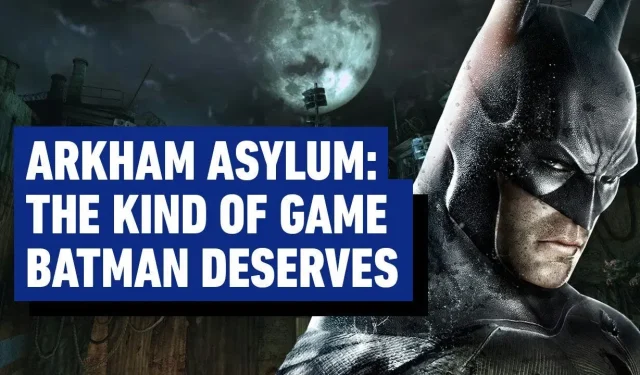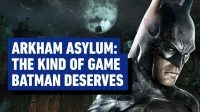The recent episode of Podcast Beyond delves into the celebrated universe of Batman video games, notably revisiting the groundbreaking Batman: Arkham Asylum, which debuted in 2009. The hosts discuss the game’s lasting impact and legacy, exploring how it shaped future installments like Arkham City and Arkham Knight. Furthermore, they reflect on recent titles like Suicide Squad: Kill the Justice League and Gotham Knights, raising poignant questions about the challenges of creating compelling Batman games. This article will break down these discussions, analyzing Arkham Asylum’s significance, the shortcomings of more recent games, and the potential future for the beloved character.
Batman: Arkham Asylum – A Timeless Classic
Batman: Arkham Asylum is celebrated not just for its engaging gameplay but also for its profound understanding of the character’s lore and the expansive universe he inhabits. The game expertly blends action-packed combat with detective elements, inviting players into a meticulously crafted world within Arkham Asylum itself. From the tense atmosphere to the clever puzzles that require players to think like the Dark Knight, Rocksteady’s debut game successfully encapsulates the essence of being Batman. The visual style and narrative structure disrupt the traditional superhero game format, providing a grounded and immersive experience that resonates with fans of the franchise.
Moreover, the artistic direction of Arkham Asylum is notably distinct, featuring a darker, more gothic aesthetic. This was a major departure from the more colorful superhero depictions seen in prior games. The voice acting, notably by Kevin Conroy and Mark Hamill, enhances the game’s authenticity, allowing players to connect with the characters on a deeper emotional level. As discussions continue about future Batman titles, Arkham Asylum remains a gold standard, showcasing what can be achieved with careful storytelling and gameplay integration.
Challenges Facing Modern Batman Games
The conversation shifts toward the more recent games, including Suicide Squad: Kill the Justice League and Gotham Knights. Both titles approached the Batman mythos from different angles but have faced criticism for various reasons. The hosts express their disappointment with the Suicide Squad game, emphasizing that it strayed too far from the core aspects that made Arkham Asylum beloved. The game’s confusion between direction and execution appears to have hampered its potential, leaving fans longing for the singular, focused narrative that characterized Rocksteady’s earlier work.
Gotham Knights represents another iteration of the franchise but lacks the iconic presence of Batman himself as the central character. Players step into the shoes of Batgirl, Robin, Nightwing, and Red Hood in a game that offers a cooperative experience yet feels disconnected from the rich history of the Dark Knight. The lack of Batman in a title largely revolving around his universe raises questions about character-driven storytelling, leaving a gap that many players were eager to see filled. These shortcomings suggest that while development teams are eager to expand the universe, they may struggle with the weight of expectations tied to such a legendary character.
The Future of Batman in Gaming
The ongoing dialogues highlight an essential question for developers: How can the legacy of Batman be honored while innovating within the gaming medium? With the enduring popularity of the character and the extensive lore that accompanies him, many fans are yearning for a fresh take that respects the foundations established by Rocksteady, possibly envisioning a revival of the Arkham formula or a new exploration inspired by Batman Beyond. Such possibilities spark lively discussions within the gaming community, imagining a cel-shaded Gotham style reminiscent of Bruce Timm’s animation.
Ultimately, the desire for a new Batman game reflects the immense cultural relevance of the character and the burden of expectations that await any fresh development. With the right approach, the potential exists to merge visual creativity and gripping storytelling into the next installment, capturing the hearts of both long-time fans and new players alike.
Conclusion
The exploration of Batman: Arkham Asylum and the subsequent failed attempts to replicate its magic truly embodies the challenges of modern game development within a rich, pre-established universe. While Arkham Asylum stands as a timeless classic, the disappointing reception of recent titles leaves many questions unanswered. As developers reflect on these experiences and interactions with the fan community, they have the chance to redefine what a Batman game can be. Will we see a return to form that honors the essence of Arkham’s success? The gaming world watches and waits, eager for the Dark Knight’s next adventure.
https://www.youtube.com/watch?v=K00Xd2TaXek


